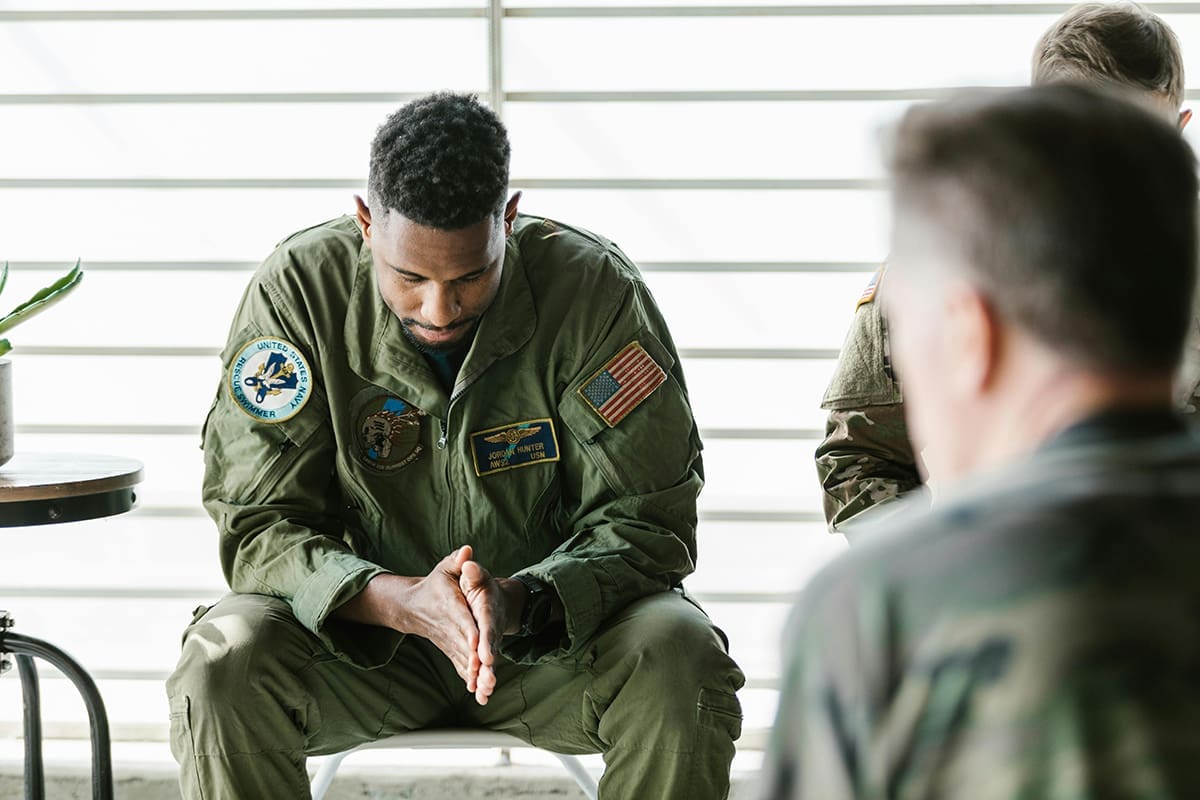
PTSD and Healing from War
Navigating PTSD and Healing from War: Insights from Anne Satori
In this post we explore a poignant and essential topic: PTSD and healing from war. Our guest, Anne Satori, a Benedictine Oblate Candidate and psychologist, shares her profound experiences working with veterans, combining her psychological expertise with the power of poetry to express complex emotions.
Discovering Poetry as a Healing Tool:
Anne’s journey into poetry was unexpected. Engaged in deep work with veterans, she experienced a spectrum of emotions, from fury to deep sadness, learning immensely from their stories. Anne’s venture into poetry began with a writing course suggested during her work at the Warrior Story Field, revealing poetry as a powerful outlet for expression.
Soul Mud: A Poem of Depth and Healing:
Anne’s poem “Soul Mud,” inspired by the concept of ‘soul murder,’ reflects on the profound inner turmoil and emotional bondage resulting from brutal acts in war. This poem is a testament to the struggles veterans face when forced into actions against their moral compass, often leading to deep-seated guilt and shame.
Understanding PTSD in Veterans:
PTSD, often misunderstood by the public, goes beyond the stereotypical notions of violence or loss of control. Anne explains it as a brain and heart issue rooted in the intense hyperarousal soldiers experience in combat. This state of constant alertness can lead to challenges in readjusting to civilian life, seeking situations that reignite their heightened sense of alertness.
The Concept of Moral Injury:
A moral injury arises when individuals engage in, or witness acts that contradict their moral beliefs, leading to profound psychological and spiritual dilemmas. Anne shares heart-wrenching stories of veterans grappling with guilt and shame, often impacting their ability to connect with loved ones upon returning home.
Creative and Therapeutic Approaches:
Anne discusses innovative therapeutic methods, like equine therapy and the Warrior Story Field project. These approaches provide veterans with alternative, more relatable forms of therapy compared to traditional settings. Projects like creating metal sculptures offer a sense of community, mission, and tangible accomplishment, resonating with the military experience.
The Challenge of Transitioning to Civilian Life:
The transition from the extremities of combat to civilian life poses significant challenges for veterans. Anne emphasizes the importance of community support and understanding the complex nature of military life. She suggests various resources for education and understanding, including documentaries, books, and online resources.
Conclusion:
Anne Satori’s insights provide a deeper understanding of the struggles veterans face with PTSD and moral injury. Her blend of psychological expertise and poetic expression sheds light on the profound impact of war on the human psyche. As a community, understanding, empathy, and supportive resources are crucial in aiding the healing process for our veterans.
For more discussions on meaningful topics, follow us on Instagram at @inscapequest. Your shares, subscriptions, and feedback are greatly appreciated. Until next time, take care and stay connected.
Important Resources:
– National Suicide Prevention Lifeline: 1-800-273-TALK (8255), press 1 for veterans
– Veterans Crisis Line: Chat online for support
– Useful Websites: ptsd.va.gov, militaryhelpline.org, objectivezero.org
Stay informed and support those in need. Together, we can make a difference in the lives of our veterans.
© Trudi Howley M.S., SEP, LPCC, CPC is a Somatic Psychotherapist and Certified Professional Coach, specializing in trauma healing.
